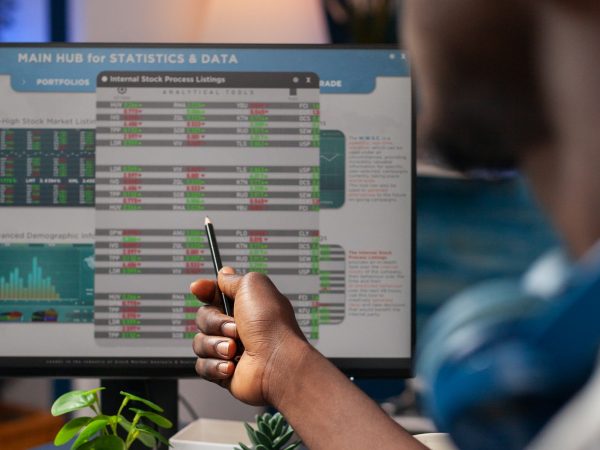Safe Investment Options UK
Safe Investment Options in The UK
When the stock market is volatile, your faith in riskier investments like stocks and shares can be shaken. When the markets get choppy, like when they fell by almost 20% in January 2022, even an interactive investor can be forced to move their money into relatively safer places, at least until the volatility calms down.
Stable investment funds with lower returns can help protect your cash and may even continue to give you a small amount of growth when times are tough.
If you want to avoid the ups and downs of the stock market, the following investment platform may have less risk than stocks and shares and could give their owners financial peace of mind.


It’s important to remember that no saving investment is 100% safe because your capital is always at risk when you invest. But there’s nothing wrong with doing what you can to reduce the risk as much as possible.
This way, even when the London Eye closes down and Big Ben is no longer popular with tourists, you can be sure that your investment can still thrive.
Give us a call, and we’ll help you with this dilemma.
So What Is a Safe Haven?
When the market is unsteady, a safe haven investment is one whose value is anticipated to hold steady or even increase. Investors look for safe havens to reduce the amount of money they could lose if the stock market goes down.
But the types of assets considered safe havens can change based on how bad the market is. That means investors must do a lot of research to ensure an investment is a safe haven.


A safe haven can help an investor diversify their investment portfolio and is helpful when the market is volatile.
Most of the time, the market goes up or down for only a short time. But there are times when the economy is in a recession when the market goes down for a long time. Most investments lose a lot of value when the market is in turmoil.
Even though systemic events in the market are unavoidable, some investors try to buy safe-haven assets or investment trusts that are uncorrelated or negatively correlated with the general market when things are bad. As most assets lose value, the value of safe havens stays the same or goes up.
What Are Some Safe Investments in the UK?
Looking to find some other safer investment alternatives than an exchange-traded fund for your pension savings? Check these investment options out!
High-Interest Current Accounts
High-interest current accounts, or HICAs, are current accounts that offer higher interest rates than savings accounts. Providers like high street banks offer these accounts. As a way to get people to sign up, some HICAs also offer cash rewards.


HICAs usually have rules that customers must follow, like putting a minimum monthly payment amount and a maximum on balances that earn interest. Interest rate deals might also only be good for a certain amount of time.
While the Financial Conduct Authority is in charge of keeping track of current accounts, the Financial Services Compensation Scheme covers banks that are allowed to do business in the UK. It protects customers up to £85,000 per person, and per institution, in case a bank fails.
Gold
Putting money into gold can help a portfolio be more stable and diverse, especially in an unstable economy. Gold is seen as a “safe haven” because it can help investors keep their money safe. It has been an excellent way to protect against the effects of inflation from way back. This is because, in theory, the price of gold can go up when there is more demand.


Gold, like cash, stocks, corporate bonds, and real estate, is an asset that can help investors get the all-important diversification they need. Diversification is helpful because it protects your money when one asset class, like shares, doesn’t do as well as expected.
Gold does not come without investment risk. As with any asset, gold prices go up and down based on supply and demand. This means that you could lose money on your initial investment.
Bonds
Bonds are investments that tend to be more stable and less risky than stocks and shares. In terms of risk, you can think of them as the halfway point between putting your money in the bank and investing in stocks.
In the United Kingdom, a government bond is called a “gilt(s).” In the United States, they are called “Treasuries.” Bonds are basically “IOUs,” and they work the same way no matter who makes them.
When you purchase a bond, you give the issuer cash in exchange for periodic interest payments (also known as “coupons”) and the return of your initial investment when the bond matures.


Bonds are also called “fixed income securities” because you know how much money you’ll get back from your investment ahead of time.
The coupon or interest rate varies from “bond to bond”. The riskier the bond, the higher the interest rate you can expect. But still, it makes it more likely that you won’t get your money back.
The Debt Management Office is where you can buy gilts from the UK. You can also use the Retail Purchase and Sale Service to buy gilts from a stockbroker or a bank.
Property and Real-Estate
Putting money into real estate is not without risk. But investments in bricks and mortar can be put in the “relatively safe” box. Along with the chance that its value will go up, the property can also be used to make money.
There are many ways to invest in real estate, either directly or indirectly. Buying a building and renting it out is the most obvious way. Keep in mind that there will be other fees to pay on top of the purchase price and any mortgage. These include estate agents, solicitors, surveys, stamp duty, insurance, and letting agents.


Most of the time, how well property funds do depends on how well the economy is doing. When times are good, there is more demand for property. This makes rents and property prices go up. When there is a slowdown or recession, the opposite is usually true.
Property is also a relatively “illiquid” asset, which means that it can be hard to sell. In the worst cases, investors can be stuck with their property portfolios until managers sell off the buildings.
Start Investing!
We understand that the risks of investing can be pretty scary, especially for a beginner investor who is still learning the ins and outs of the market. However, you must consider the investment as soon as possible to maximize your asset’s time to grow.
Pearl Lemon Invest experts will take care of your income bonds, direct debit, fixed rate and give any investment advice you might need. So, what are you still worrying about?
Contact us today and start investing now!

Frequently Asked Questions
Risk appetite is the amount of investment risk a business or an individual is willing to take to reach goals it thinks are important. Risk appetite can also be considered an organisation’s risk capacity or the risk it will be willing to take after putting controls and other measures in place.
Risk tolerance, on the other hand, is the amount an organisation is willing to deviate from its risk appetite to reach a particular goal, considering industry and vertical standards.
- Start as soon as possible, so your money has more time to multiply.
- You don’t have to choose your own stocks to start investing. You can start investing in mutual funds.
- Investing is for the long term, preferably at least five years.
- The investment risk of losing is higher when the possible rewards are higher.
- Consider the help of a financial adviser to find other investment opportunities for your portfolio and general financial advice.
- Diversification is a must for responsible investment as it can lessen the damage done by a bad investment.
No. Return and yield depend on how much risk you are willing to take. If you had an investment with no risk, you wouldn’t get any return or yield.
Even with cash, this is true. Inflation is a risk for cash, so the return on cash will usually show how much inflation is expected.
Many academics say that nothing can be 100% guaranteed when it comes to investing, so there is no such thing as a risk-free investment or a risk-free asset. All financial assets risk their value going down, or they won’t be worth anything at all. But there are some investments where the risk is so low that the average interactive investor thinks of them as risk-free.

